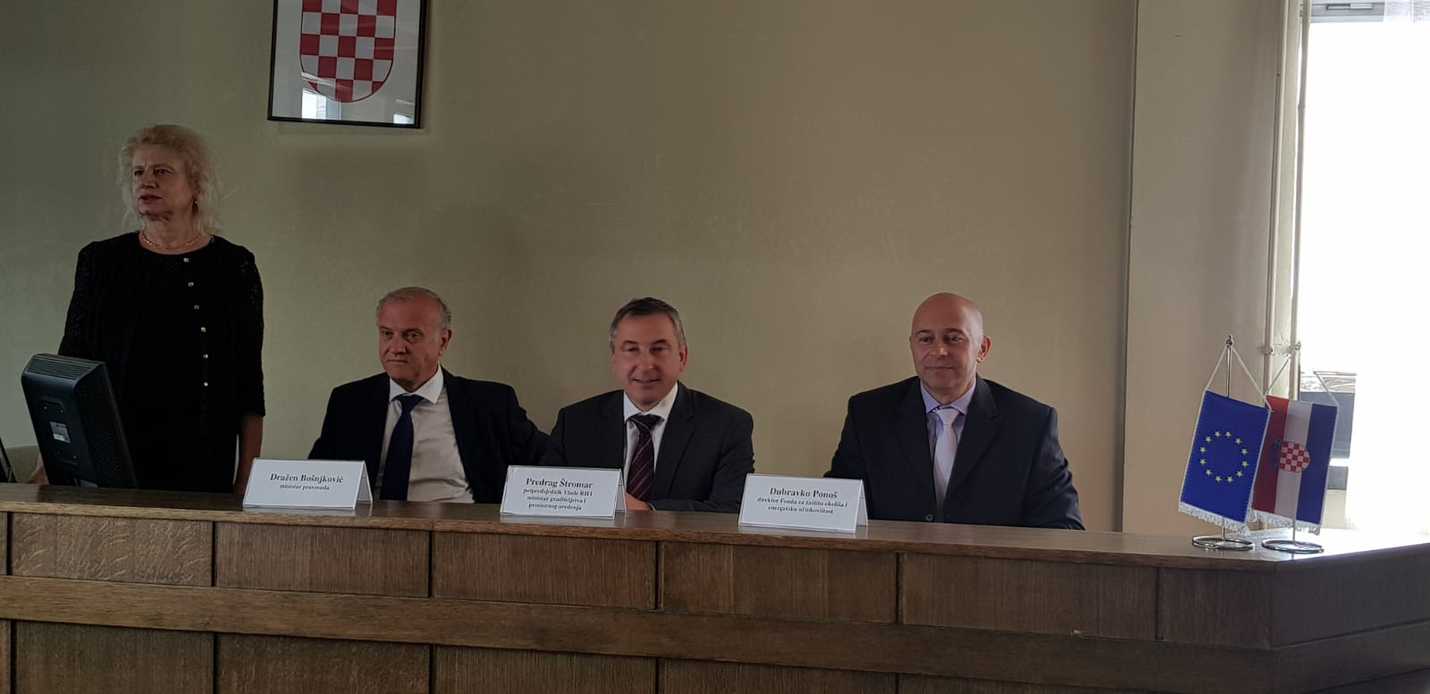18.09.2018.
The existing building of the Municipal Court in Slavonski Brod will be renovated under the Grant Agreement for the project of energy renovation of the building of the Municipal Court in Slavonski Brod; it was built in 1974 and it no longer complies with the Technical regulation on rational use of energy and thermal insulation in buildings.
“Energy renovation projects have multiple impacts. Apart from the savings in energy generating products, it should be emphasised that the projects will have a positive impact on the growth of the construction sector. In the upcoming period it is planned to invest HRK 5 billion in energy renovation, which is an opportunity for small and medium construction companies. Our goal is to restore the construction sector to the status before the crisis, resulting in higher wages for construction workers”, pointed out Predrag Štromar, the vice president of the Croatian Government and minister of construction and physical planning.
The director of the Environmental Protection and Energy Efficiency Fund Dubravko Ponoš said: “Energy renovation of buildings has been recognised as one of the key energy efficiency measures. EU funds gave us the opportunity to utilise millions of kunas for the projects of energy renovation of buildings. The total investment is 7 million kuna, of which HRK 4.3 million has been secured from the European Regional Development Fund under the Operational Programme Competitiveness and Cohesion. Very keen interest shows that the public calls are well structured, and that potential beneficiaries, along with professional assistance from the Fund, can successfully apply their projects.”
Minister of Justice Dražen Bošnjaković also expressed his pleasure with the renovation of the court building, saying that this was only the first in a series of agreements that the Ministry of Justice was planning to sign with the Ministry of Construction and the Environmental Protection and Energy Efficiency Fund under the public call for energy renovation of public buildings.
“If we wish to stimulate our citizens to think along these lines, we as the state have to set an example with investments in the state-owned structures, to show that such investments are cost-effective in the long term”, concluded Mr. Ponoš of the Environmental Protection and Energy Efficiency Fund.
Following the completion of the measures defined in the energy renovation main design, the building will achieve energy performance grade B, in accordance with the Technical regulation, accounting for almost 80% of savings of energy for heating, 89% of savings in the part of primary energy after energy renovation, and the reduction of CO2 emissions amounting to 90% at annual level.








